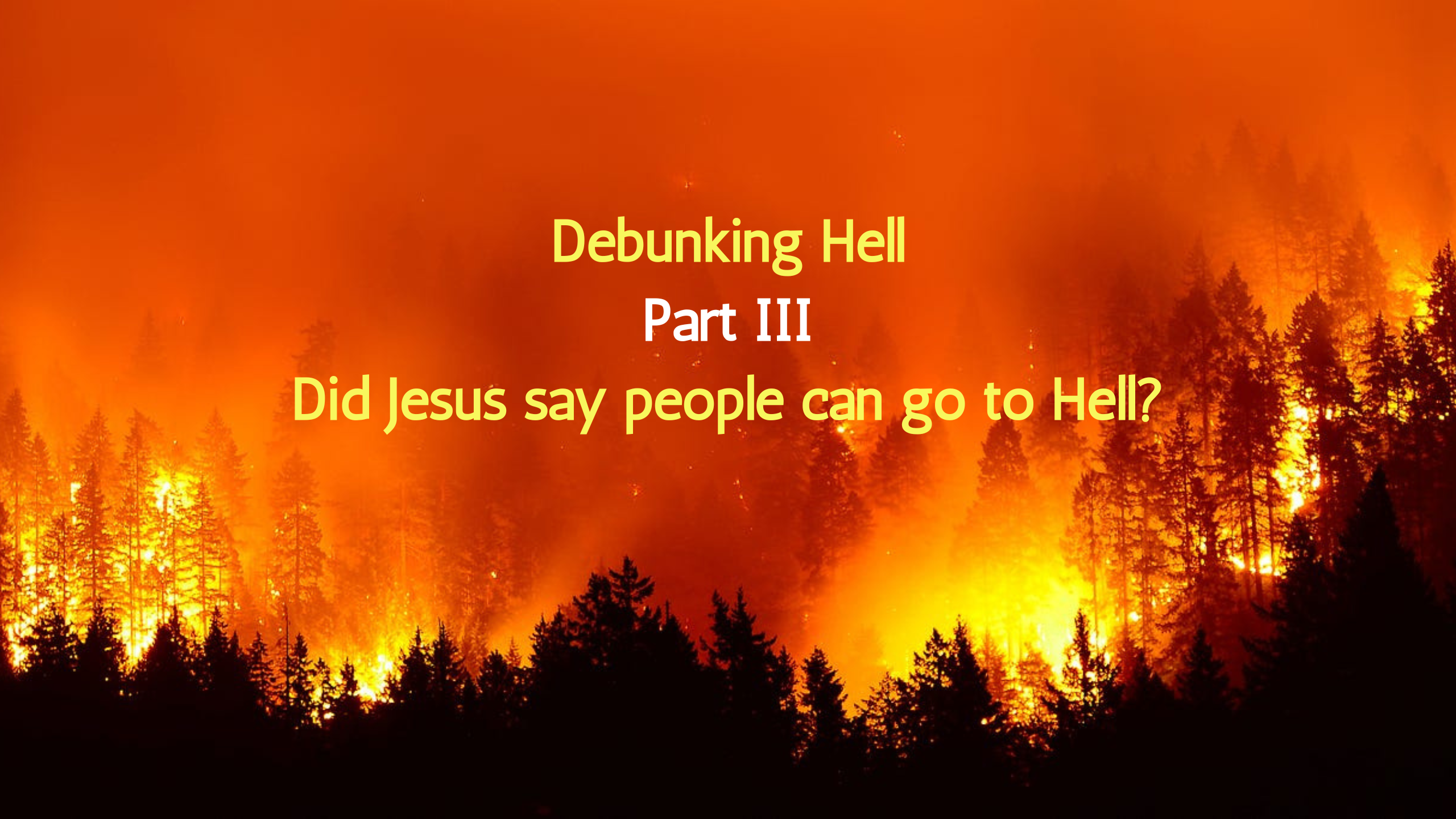In the last episode, we looked at how the Greco/Roman influence introduced the concept of a fiery tormenting hell to the Jews. Still, our concept of hell and the devil being the ruler of hell wasn’t what the Jews believed. Where did we get the concept that God judges people for their sins by sending them to suffer in hell for eternity? We’re told as Christians that this is what Jesus and the disciples taught. Well, did Jesus people can go to Hell?
Let’s look at Matthew 5:21-22 and see how the Greek word gehenna is used by the translators.
As I said in Part II of Debunking Hell, Jesus talks about the national judgment coming upon Judea for their apostasy. Jesus shows in these verses that not only aren’t the Jews following the letter of the Covenant Law, but they aren’t following the spirit of the law either. Righteousness is mercy, compassion, humility, and justice, not criticism, selfishness, arrogance, and privilege. Gehenna, in this passage, is an illustration of the nation’s impending judgment. John the Baptist and the prophets all said the same thing. The kingdom of God was coming, but in establishing God’s kingdom, the judgments of the old covenant must be fulfilled. Thus, the reference to the Gehenna fire.
This theme of gehenna illustrating the coming national judgment is carried on in every passage that uses gehenna: Mark 9:43-45, Matthew 5:29-30, and Matthew 18:9.
No one believes anyone is entering eternity with missing limbs. However, we want to pay special attention to Mark’s account because Jesus described Gehenna as having an unquenchable fire. It means the inability to stop a fire or an unstoppable fire. This, again, is a national judgment. Jesus used the illustration of Gehenna as something unstoppable, not endless. When Assyria destroyed Israel in 722 BC, that was unstoppable, not endless. When Babylon destroyed Jerusalem in 586 BC, it was unstoppable, not endless.
In Luke 12:4-5 and Matthew 10:28, we see the same usage of Gehenna.
This is a warning. He calls them friends. This is still illustrating the national judgment of Jerusalem and Judea. It’s one thing to be able to kill something, but it’s another to wipe their presence from the face of the earth. Judea had been defeated and killed as a nation many times before, but they returned. This time, when they are judged by God, they will never come back as his people. His chosen nation. They will be wholly consumed.
In the next two passages (Matthew 23:15 and Matthew 23:33), Jesus judges the nation’s leadership. A child of Gehenna states that those who covert to be like them will end up suffering the same impending judgment.]
In just three verses from this judgment, Jesus states that the judgment will happen to the generation he’s speaking to (Matthew 23:36).
Jesus told the nation and its leaders they were headed for the valley Gehenna, where the nation would be completely consumed. Being completely consumed is referenced in the unquenchable fire, the gnashing of teeth, and the heartfelt torment of the heart and soul of the nation of Judea, which would be fulfilled in the fiery destruction of Jerusalem in 70 A.D.
What about the lake of fire in Revelation? The lake of fire is the symbol of the real thing, Gehenna. This is established because the “lake of fire” only occurs in Revelation, a book of signs and symbols, but Gehenna was a literal place. The lake of fire in Revelation signifies the unquenchable fiery judgment coming on Jesus’ generation. To the Jews, Gehenna was a dumpster fire, not an eternal pit of fiery torment. It was a place of abandoned and rejected things. There is nothing in these passages that says Satan is the ruler of Gehenna.
As we’ve seen, the concept of endless punishment was completely foreign to inspired writing before and during the Law of Moses, and now we see it’s foreign to the teaching of Jesus. Hell became a “Dog whistle” for Greek and Roman philosophers, authoritarian empires, Renaissance artists and poets, evangelistic preachers, and church bureaucrats.
If there’s no hell, where do the wicked go? Jesus never taught anything about the final destiny of the wicked. The Rich Man and Lazarus story in Luke 16 was a parable. Hell never appeared in the Book of Acts or Paul’s letters to the churches. Acts and Paul’s letters covered 30 years of preaching the kingdom of God, and nowhere is there a mention of hell. Listen to what Paul told the Ephesian church in Acts 20:24-27.
I have done a complete and exhaustive study of the concept of hell in scripture, and I’ve presented my findings here in these 3 episodes about debunking hell. I’ve given you everything there in the Bible, and there is nothing about a place called hell where the devil rules and tortures humans that God has sent to him. You have the evidence.


